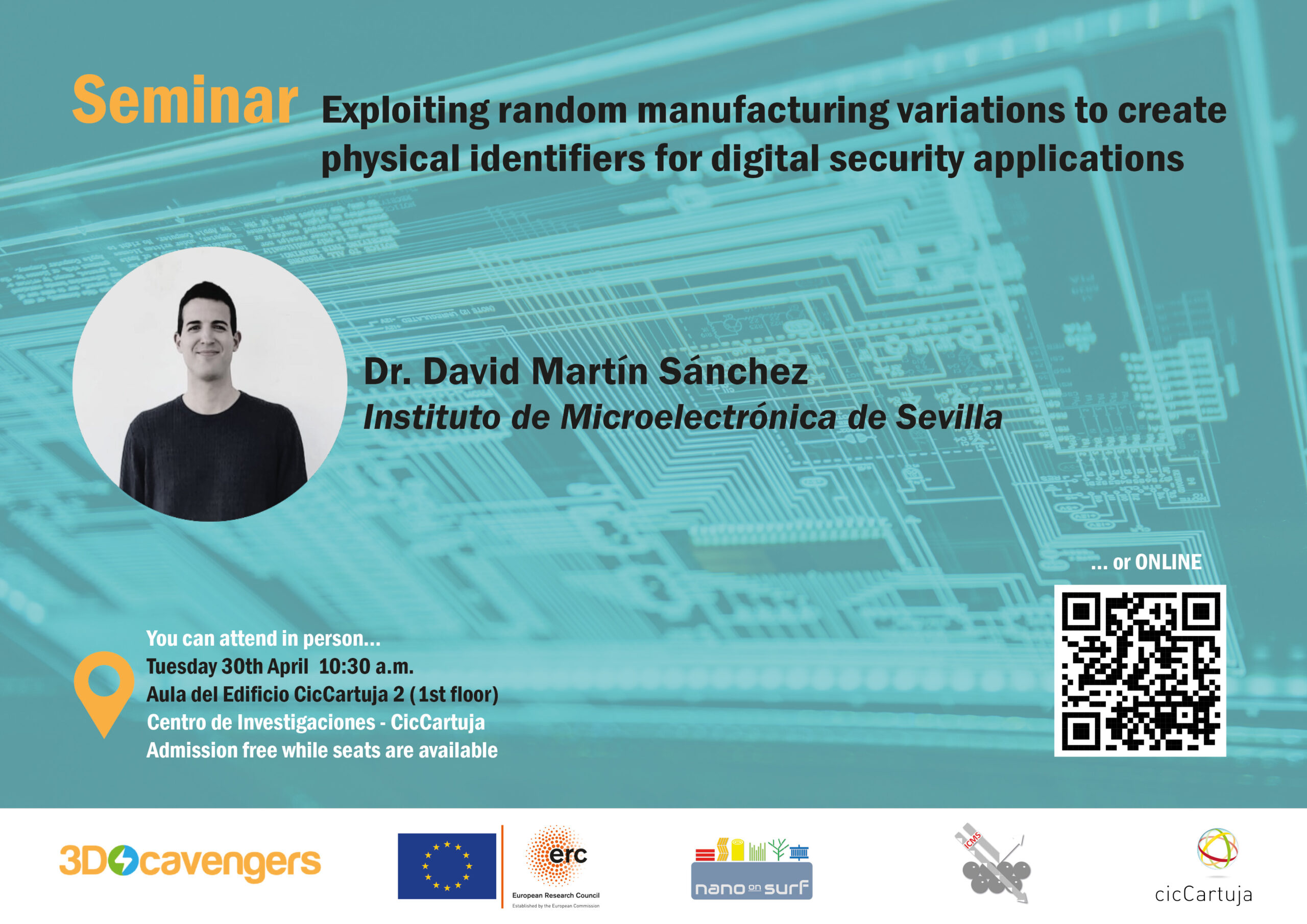News

On Tuesday 30 April , Dr. David Martín Sánchez (Seville Institute of Microelectronics- IMSE), will give one seminar within the 3DScavengers project in Seville Institute of Materials (ICMS). Martin, who is now a Marie Skłodowska-Curie postdoctoral fellow at IMSE, will give a talk titled Exploiting random manufacturing variations to create physical identifiers for digital security applications.
You can attend online at this link or in person at ICMS. If you are not a member of this center to access the facilities you need to send your name, surname, and ID to the following email (3dscavengers@icmse.csic.es).
Abstract
Digital technology has transformed global economy and people’s lifestyles in half a century by enhancing communications, access to information, and processing capabilities. However, this technology also carried a series of serious threats, such as exposure of sensitive information, theft of industrial secrets, and lack of privacy. To address these issues, digital cryptography was developed.
Cryptography relies on secret keys to enable confidentiality of communications by encrypting information and to authenticate the identity of users by implementing authorised access control. These keys are mere bit strings that can be generated by software. However, certain cyberattacks are able to steal keys created this way. Developing hardware circuits specifically designed for this purpose is preferred to build strong security applications.
I am studying how some physical components can be used to create a digital identity, which is unique and unclonable, to enable secure authentication. As part of this research, I am exploring the random distribution of pores in membranes to diffuse light in random ways. In this talk, I will share the preliminary results, which show how the transmitted light interference patterns (the “speckle” patterns) are unique and can be used to extract the cryptographic keys. Further research is still needed to demonstrate the reliability of these identifiers against againg and environmental variations.
Short biography
David received his bachelor degree in Telecommunication Engineering from University of Seville in 2014 and his master degree in Biomedical Engineering from Polytechnical University of Valencia in 2016. Later, he obtained his Ph.D. degree in Biophotonics also from Polytechnical University of Valencia in 2019. He spent three years as a postdoctoral research fellow at University College London.